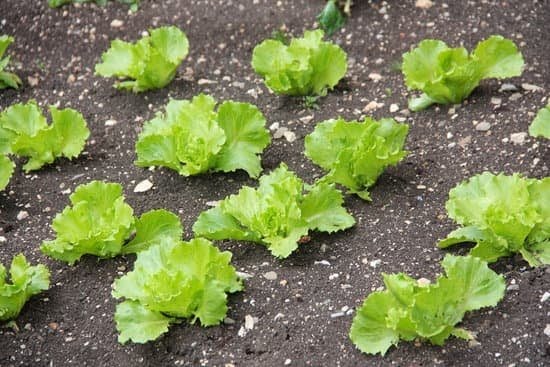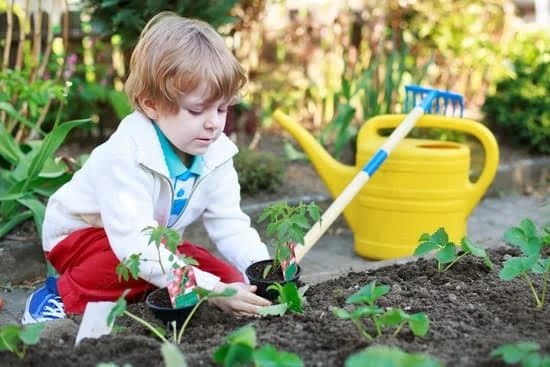Looking to start your own organic vegetable garden? Whether you’re a beginner or an experienced gardener, learning the best practices for organic vegetables gardening tips is essential to ensure a successful and bountiful harvest. From selecting the right location to maintaining a healthy and flourishing garden, this article will provide you with all the information you need to get started.
Organic vegetable gardening involves growing vegetables without the use of synthetic pesticides and fertilizers, promoting healthier produce and a more sustainable environment.
In this article, we will cover various aspects of organic gardening, including selecting the right location for your garden, soil preparation and composting techniques, choosing the best vegetables to grow organically, essential tools and equipment needed for organic gardening, natural pest control remedies, watering and irrigation methods for organic gardens, harvesting and storing your produce, as well as tips for maintaining a healthy garden.
Whether you have a spacious backyard or limited outdoor space, anyone can enjoy the benefits of growing their own organic vegetables. By following these tips and techniques, you can create a thriving organic garden that provides fresh and nutritious produce for you and your family. Let’s delve into the world of organic vegetable gardening and embrace a sustainable lifestyle.
Selecting the Right Location for Your Organic Garden
Sunlight Requirements
One of the most important factors to consider when selecting a location for your organic garden is the amount of sunlight the area receives. Most vegetables require at least 6-8 hours of direct sunlight each day to thrive.
When choosing a spot for your garden, take note of any obstacles such as buildings or trees that may block out sunlight during certain times of the day. Additionally, consider the angle of the sun throughout the day and how it will affect different areas of your garden.
Soil Quality
Another crucial aspect to consider is the quality of the soil in your chosen location. Conduct a soil test to determine its pH levels and nutrient content. Look for well-draining soil that is rich in organic matter and has good fertility. Avoid areas with compacted soil or poor drainage, as these conditions can hinder plant growth and lead to disease issues.
Proximity to Water Source
Lastly, assess how close your selected location is to a water source such as a hose or irrigation system. This will make watering more convenient and efficient, especially during dry periods. Keep in mind that some vegetables may have higher water requirements than others, so easy access to water will be beneficial in maintaining a healthy garden.
By taking these factors into consideration when choosing the right location for your organic vegetable garden, you can set yourself up for success and ensure that your plants have the best possible environment to grow and thrive.
Soil Preparation and Composting Techniques
The key to a successful organic vegetable garden lies in the quality of the soil. Before planting your organic vegetables, it is crucial to prepare the soil properly and utilize composting techniques to ensure that your plants receive the necessary nutrients for healthy growth. One of the most important organic vegetables gardening tips is to start with rich, fertile soil that is teeming with beneficial microorganisms.
To prepare the soil for your organic garden, begin by removing any weeds or debris from the area. Once cleared, incorporate organic matter such as compost, aged manure, or organic fertilizer into the soil. This will improve its texture and provide essential nutrients for your vegetables. Additionally, consider performing a soil test to determine its pH level and make any necessary adjustments to create an optimal growing environment for your plants.
Composting is another vital aspect of organic vegetable gardening. By creating and using compost from kitchen scraps and yard waste, you can enrich the soil and reduce waste at the same time. Compost adds valuable organic matter to the soil, improves its structure, and helps retain moisture-all of which are essential for growing healthy organic vegetables.
| Organic Gardening Tips | Data |
|---|---|
| Start with rich, fertile soil | Teeming with beneficial microorganisms |
| Remove weeds and debris | Incorporate organic matter such as compost and aged manure |
| Create and use compost from kitchen scraps and yard waste | Enriches the soil and reduces waste |
Choosing the Best Organic Vegetables to Grow
When it comes to choosing the best organic vegetables to grow in your garden, there are a few factors to consider. Firstly, it’s important to think about what vegetables you and your family enjoy eating. After all, the whole point of growing your own organic produce is to have access to fresh, healthy vegetables that you love. Think about the types of dishes you enjoy cooking, and which vegetables are staples in those recipes.
Another key consideration is the climate and growing conditions in your area. Some vegetables thrive in cooler temperatures, while others require plenty of sunlight and warmth. Research which vegetables are best suited to your local climate, as this will increase the likelihood of a successful harvest.
It’s also a good idea to choose organic vegetable varieties that are known for being resistant to pests and diseases. This can help reduce the amount of maintenance required for your garden, and ensure a more bountiful yield. Look for heirloom or hybrid varieties that have a reputation for being hardy and resilient.
By carefully considering these factors and doing some research on the best organic vegetable varieties for your specific location, you can set yourself up for a successful and rewarding gardening experience. Growing your own organic vegetables is not only fulfilling but also ensures that you have access to fresh, nutritious produce all season long.
Essential Tools and Equipment for Organic Gardening
When it comes to organic vegetable gardening, having the right tools and equipment can make a significant difference in the success of your garden. First and foremost, investing in quality gardening gloves is essential to protect your hands from cuts, blisters, and exposure to chemicals. Look for gloves made from natural materials such as bamboo or cotton to align with the organic principles of your garden.
A durable trowel is another must-have tool for organic gardening. Whether you are transplanting seedlings or digging up weeds, a sturdy trowel will be your best friend in the garden. Opt for one with a comfortable handle and a strong metal blade that can withstand tough soil.
In addition to hand tools, watering cans or hoses equipped with a gentle spray nozzle are crucial for nurturing your organic vegetables. Proper watering is essential for the health of your plants, so invest in a reliable watering system that allows you to control the flow of water without causing damage to delicate seedlings.
Lastly, consider incorporating a compost bin into your organic gardening arsenal. Composting is an integral part of organic gardening as it provides nutrient-rich fertilizer for your vegetables while reducing waste. A compost bin will help you efficiently recycle kitchen scraps and yard waste into valuable compost that will enrich the soil in your garden beds.
Ensuring that you have these essential tools and equipment on hand will set you up for success in cultivating a thriving organic vegetable garden. By prioritizing the use of eco-friendly, sustainable tools and equipment, you can fully embrace the principles of organic gardening while reaping bountiful harvests of nutritious, homegrown produce.
Organic Pest Control and Natural Remedies
When it comes to organic vegetable gardening, one of the biggest challenges can be managing pests without using harmful chemicals. However, there are several natural remedies that can help keep pests at bay and protect your crops. Here are some tips for organic pest control in your garden:
- Attract Beneficial Insects: One of the most effective ways to control pests in an organic garden is by attracting beneficial insects such as ladybugs, lacewings, and parasitic wasps. These insects can help naturally control pest populations by preying on them.
- Companion Planting: Planting certain vegetables and herbs together can help deter pests. For example, planting marigolds alongside your tomatoes can help repel nematodes, while growing basil near your tomatoes can discourage hornworms.
- Homemade Pest Sprays: You can create homemade organic pest sprays using ingredients like garlic, hot peppers, and neem oil to repel common garden pests such as aphids, caterpillars, and beetles.
In addition to these natural pest control methods, it’s important to regularly inspect your plants for signs of pest damage and take action as soon as you spot any issues. By taking a proactive approach to pest management in your organic garden, you can protect your crops without resorting to synthetic pesticides.
Remember that the goal of organic gardening is to work with nature rather than against it. By implementing these organic pest control methods and natural remedies in your vegetable garden, you can cultivate healthy crops while promoting a balanced ecosystem.
Watering and Irrigation Methods for Organic Gardens
When it comes to organic vegetable gardening, watering and irrigation are crucial factors for the health and productivity of your plants. Proper watering methods can help ensure that your organic garden thrives and produces a bountiful harvest. Here are some tips and techniques for effective watering and irrigation in your organic garden:
- Mulch: Using mulch in your organic garden can help conserve moisture in the soil and reduce the need for frequent watering. Organic materials such as straw, grass clippings, or compost can be used as mulch to retain soil moisture and regulate temperature.
- Drip Irrigation: Consider installing a drip irrigation system in your organic garden. This method delivers water directly to the base of each plant, minimizing water waste and promoting efficient water usage.
- Watering Schedule: Establish a regular watering schedule based on the specific needs of your organic vegetables. Some plants may require more frequent watering, while others may thrive with less water.
In addition to these practical tips, it’s important to be mindful of the quality of water you use in your organic garden. Whenever possible, consider using rainwater or collected greywater for irrigation to minimize reliance on municipal water sources.
By implementing these watering and irrigation methods while also focusing on soil health through composting and mulching, you can create an optimal environment for growing healthy organic vegetables in your garden.
Remember that successful organic vegetable gardening involves sustainable practices that support both the environment and your own wellbeing. With careful attention to watering and irrigation, you can contribute to a more sustainable lifestyle while enjoying an abundant harvest of fresh, organically grown produce from your own garden.
Harvesting and Storing Your Organic Vegetables
Once your organic vegetables have reached maturity, it’s time to harvest and store them properly. This section will provide you with some tips and techniques to ensure that you get the most out of your hard work in the garden.
Harvesting Techniques
When it comes to harvesting your organic vegetables, timing is key. Each type of vegetable has its own optimal harvesting time, so it’s important to do some research on the specific varieties you are growing. In general, most vegetables should be harvested when they are at their peak ripeness and flavor. Use a sharp knife or pruning shears to carefully cut the vegetables from the plant, being careful not to damage neighboring produce.
Storing Tips
Proper storage is essential for maintaining the freshness and flavor of your organic vegetables. Many root vegetables like carrots and potatoes can be stored in a cool, dark place for extended periods of time. Leafy greens and herbs should be stored in the refrigerator in airtight containers or plastic bags to retain moisture. It’s important to check on your stored vegetables regularly to remove any spoiled produce before it affects the rest.
Canning and Freezing
To preserve your harvest for longer periods of time, consider learning about canning and freezing techniques. Canning involves using heat to seal fruits and vegetables in jars, while freezing requires blanching and then freezing produce at its peak freshness. Both methods can extend the shelf life of your organic vegetables well beyond their typical lifespan.
By following these harvesting and storing tips, you can enjoy the fruits of your labor for an extended period of time while minimizing waste. Properly cared-for organic vegetables will not only taste better but also contribute to a more sustainable lifestyle.
Tips for Maintaining a Healthy and Flourishing Organic Garden
Maintaining a healthy and flourishing organic garden requires consistent care and attention to detail. Here are some essential tips to help you keep your organic vegetable garden in top condition:
First and foremost, regular weeding is crucial to maintaining a healthy organic garden. Weeds compete with your vegetables for water, nutrients, and sunlight, so it’s important to stay on top of them. Hand-weeding is the most effective method for removing weeds in an organic garden, as it avoids the use of harmful chemicals.
In addition to weeding, proper watering and irrigation are essential for the health of your organic vegetables. It’s important to water deeply but infrequently to encourage deep root growth. Mulching around your plants can also help retain moisture in the soil and reduce the frequency of watering. Drip irrigation systems are a great option for conserving water and delivering it directly to the base of your plants.
Furthermore, regular inspection for pests and diseases is vital for maintaining a thriving organic garden. Keep an eye out for common pests such as aphids, caterpillars, and snails, as well as signs of disease such as wilting or discoloration. By catching these issues early, you can implement natural pest control methods such as introducing beneficial insects or using homemade remedies like garlic spray or neem oil.
By implementing these tips for maintaining a healthy and flourishing organic garden, you can enjoy bountiful harvests of fresh, nutritious vegetables while minimizing your environmental impact. Organic vegetable gardening is not only beneficial for your health but also contributes to a more sustainable lifestyle overall.
Keep these tips in mind as you tend to your organic garden, and you’ll be well on your way to reaping the rewards of your labor while nurturing the earth at the same time.
Conclusion
In conclusion, organic vegetable gardening offers numerous benefits for both the environment and our health. By choosing to grow our own organic vegetables, we not only reduce our carbon footprint but also ensure that we consume produce free from harmful chemicals and pesticides. It’s a sustainable lifestyle choice that allows us to reconnect with nature and take control of what we put into our bodies.
Following the tips outlined in this article can help beginner and experienced gardeners alike to successfully cultivate their own organic vegetable garden. Selecting the right location, understanding soil preparation and composting techniques, choosing the best vegetables to grow, using essential tools and equipment, implementing organic pest control methods, adopting proper watering and irrigation methods, as well as learning how to harvest and store vegetables are all essential components of a flourishing organic garden.
Embracing organic vegetable gardening is not just a hobby or a way to save money on groceries; it’s a commitment to sustainable living. By putting in the effort to grow our own organic vegetables, we contribute positively to the environment and promote healthier food choices for ourselves and our families.
Whether you have limited space or ample room for a garden, anyone can start small and gradually expand their organic gardening efforts. With dedication and passion for sustainability, anyone can make a difference through embracing the practice of organic vegetable gardening.
Frequently Asked Questions
What Is the Best Way to Grow Organic Vegetables?
The best way to grow organic vegetables is to start with healthy soil. Organic gardening relies on natural methods like composting and crop rotation to ensure the soil is nutrient-rich and free from harmful chemicals.
What Are the Rules for Organic Gardening?
The rules for organic gardening include avoiding synthetic fertilizers, pesticides, and genetically modified organisms. Instead, organic gardeners use natural alternatives like compost, mulch, and beneficial insects to maintain a healthy garden ecosystem.
How Do You Start an Organic Garden for Beginners?
For beginners looking to start an organic garden, it’s important to begin with a small plot of land or containers for easy management. Researching local growing conditions and selecting easy-to-grow plants can set you up for success in your new organic garden endeavor.

If you’re looking to get into vegetable gardening, or are just looking for some tips on how to make your current garden better, then you’ve come to the right place! My name is Ethel and I have been gardening for years. In this blog, I’m going to share with you some of my best tips on how to create a successful vegetable garden.





